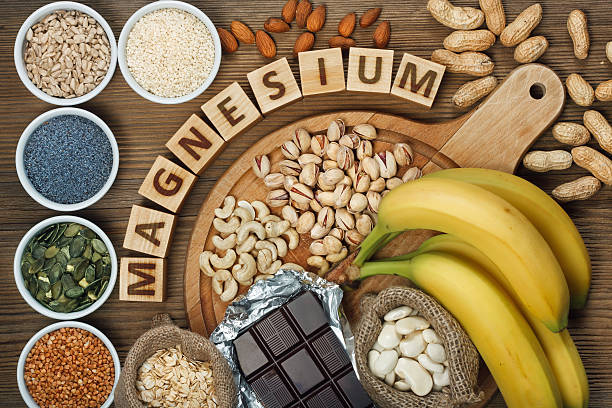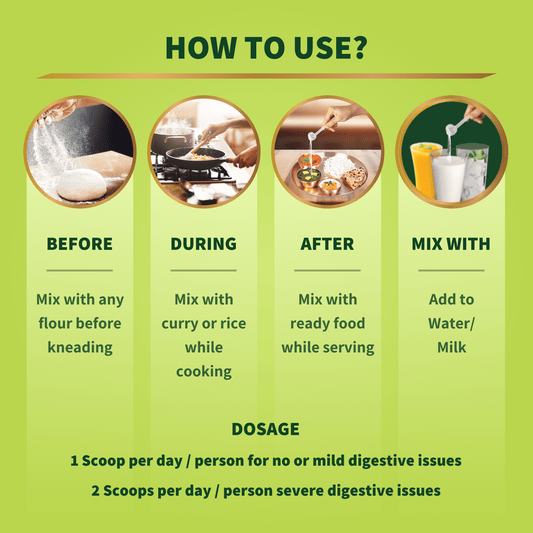Vitamins and minerals are imperative nutrients for our body and are responsible for the smooth functioning of various processes. These processes include boosting the immune system, metabolism, cell growth, and proper functioning of the nervous system. Furthermore, these aid in strengthening bones and teeth health, maintaining tissue health, improving energy levels and many other functions.
The vitamins and minerals in food are two different entities that work synergistically in our body to support various functions. So, here we will try to understand what are vitamins and minerals and what is the importance of vitamins and minerals in our diet.
Difference between Vitamins and Minerals
Vitamins and minerals, though their names are taken together, differ significantly in their functions, how they are absorbed and used by the body, and their chemical composition. But that does call for a battle of Vitamins vs Minerals, as they can also work conjointly in our body to perform certain functions accurately. So, let’s see what is the difference between vitamins and minerals.
Nature and Composition
To understand the role and significance of the duo in our anatomy, we first need to know the nature and composition of vitamins and minerals.
-
Vitamins
Vitamins are carbon-containing nutrients known as organic compounds. Our body requires different types of vitamins in very small amounts. As the body cannot prepare enough vitamins, they must be obtained from diet and food supplements. Vitamins are reduced by heat, air, or acid. They are segregated into two categories: water-soluble, including vitamins C and B-complex vitamins, and fat-soluble, including vitamins A, D, E, and K.
-
Minerals
Minerals are known as inorganic compounds as they do not contain carbon and have a definite chemical composition. The minerals do not get degraded from heat, unlike the vitamins. Minerals are classified into macro minerals like calcium, potassium, sodium, magnesium, phosphorus, sulfur etc, and trace minerals like iron, zinc, copper, selenium, iodine and magnesium.
Function
Vitamins and minerals perform various functions in the body together as well as separately; having a balanced diet, including foods rich in vitamins and minerals will allow your body to execute these functions smoothly without any fuzz.
-
Vitamins
The vitamins are necessary for good vision, immunity, skin health, nervous system function, red blood cell formation, and energy production. They support the immune system, aid collagen production, act as antioxidants, and promote bone health while regulating calcium and phosphorous.
-
Minerals
Minerals are crucial for strong bones, muscle function, nerve transmission, oxygen supply to the blood, energy metabolism, protein synthesis, and immune boosting. These are also necessary for wound healing, regulating fluid balance, muscle contraction, and nerve signals.
Types
These vital nutrients are broadly classified into numerous types to make it easy to recognise vitamin and mineral deficiency closely individually and work to combat the same.
-
Vitamins
There are 13 types of vitamins that are essential for the proper functioning of human anatomy: vitamin A, vitamin C, vitamin D, vitamin E, vitamin K, vitamin B1, vitamin B2, vitamin B3, vitamin B6, vitamin B12, biotin, folate, and pathogenic acid. These vital vitamins can be gathered through various combinations of diversified food items.
-
Minerals
The minerals which are vital for our body are calcium, phosphorous, potassium, sodium, chloride, magnesium, iron, zinc, iodine, copper, manganese, selenium, fluoride and molybdenum, which are found in different types of food.
Sources
Our Mother Nature has generously endowed us with sources of vitamins and minerals which will help us remain healthy. So let’s discuss vitamins and minerals food sources.
-
Vitamins
We get vitamins from various food products like fruits, vegetables, cereals, whole grains, dairy products, and lean meat.
-
Minerals
Minerals are found in meat, fish, dairy products, fruits, vegetables, nuts, and seeds.
Deficiency Impact
Vitamins and minerals are such paramount nutrients that even a slight deficiency can have a large impact on your health. Therefore, it is recommended to have a rich in vitamins minerals food regularly.
-
Vitamins
Vitamin deficiency is very common nowadays. It can cause various problems, including fatigue, brittle hair and nails, nerve-related problems, poor healing, mouth ulcers, vision loss, fragile bones, hair loss, and depression.
-
Minerals
Lack of essential minerals triggers various problems in the body like weak immunity, weak bones, anaemia, paleness of skin, shortness of breath, unusual headaches, dizziness, muscle cramps, dry and itchy skin and depression. These are some of the noticeable symptoms of mineral deficiency.
Stability
The vitamins and minerals have different stability, meaning both are affected uniquely by light, heat, and oxygen. So, let’s try to understand this concept.
-
Vitamins
The vitamins which are water soluble are unstable as they are sensitive to light, heat and oxygen. Whereas the fat soluble vitamins are relatively stable but still get affected by heat and oxygen.
-
Minerals
Minerals are more stable when compared to vitamins as they are inorganic in nature, they can withstand cooking and freezing without losing their essence.
Absorption
As vitamins and minerals are different entities even their absorption and assimilation in the body are equally varied. So, here we will throw light on their absorption process.
-
Vitamins
The water-soluble vitamins are directly absorbed into the blood through the digestive tract, and the excess amount is excreted out of the urine without being stored anywhere. The fat-soluble vitamins are absorbed with dietary fibre and get stored in the liver and fatty tissues, which can transform into toxins if not consumed in regulated amounts.
-
Minerals
The macro minerals are absorbed through the digestive system and stored in the tissues, with excess minerals excreted through urine. The trace minerals are absorbed in smaller quantities than the macro minerals, stored in specific tissues or organs, and moved out through urination.
Conclusion
The vitamins and minerals are the foundational nutrients for maintaining good health, playing their unique and crucial roles. The organic elements and vitamins contribute to immune function, cell repair and energy production but are sensitive to heat and air. The inorganic compounds and minerals are essential for fluid balance, bone health, and biochemical processes and are also less affected by food processing. Hence, for optimal health, it is inevitable to have foods that contain vitamins and minerals that will improve your overall health.
If you are leading a fast life and can’t count on a regular dose of vitamins and minerals directly from natural sources, you must opt for Good Monk’s Nutrition Mixes, Instant Fruit drink Mixes, and Nutrition Bar. These unique formulations are packed with various vitamins and minerals to suffice your daily nutritional needs. With these products by your side, you don’t have to spend your time checking out various nutrition sources and adding them to your meals. Stay healthy and strong with Good Monk taking care of you.
FAQs
Q. Can I get all the necessary vitamins and minerals from my diet?
Generally, we can get all the necessary vitamins and minerals from our diet, provided we follow a very strict lifestyle and include all the veggies, fruits, grains, and dairy products in the right proportion. However, making the right call is not an easy task. Include nutritional supplements by Good Monk instead to ensure enough intake.
Q. Are there any risks associated with taking too many vitamins and minerals?
Yes, taking too many vitamins and minerals can pose serious risks to our health, hence it is advisable to consult your physician while taking any supplements.
Q. Do vitamins and minerals work together in the body?
Yes, vitamins and minerals can work together and this is called nutrient synergy, which has numerous benefits including absorption of nutrients, boosting the nervous system, bone and muscle health.














